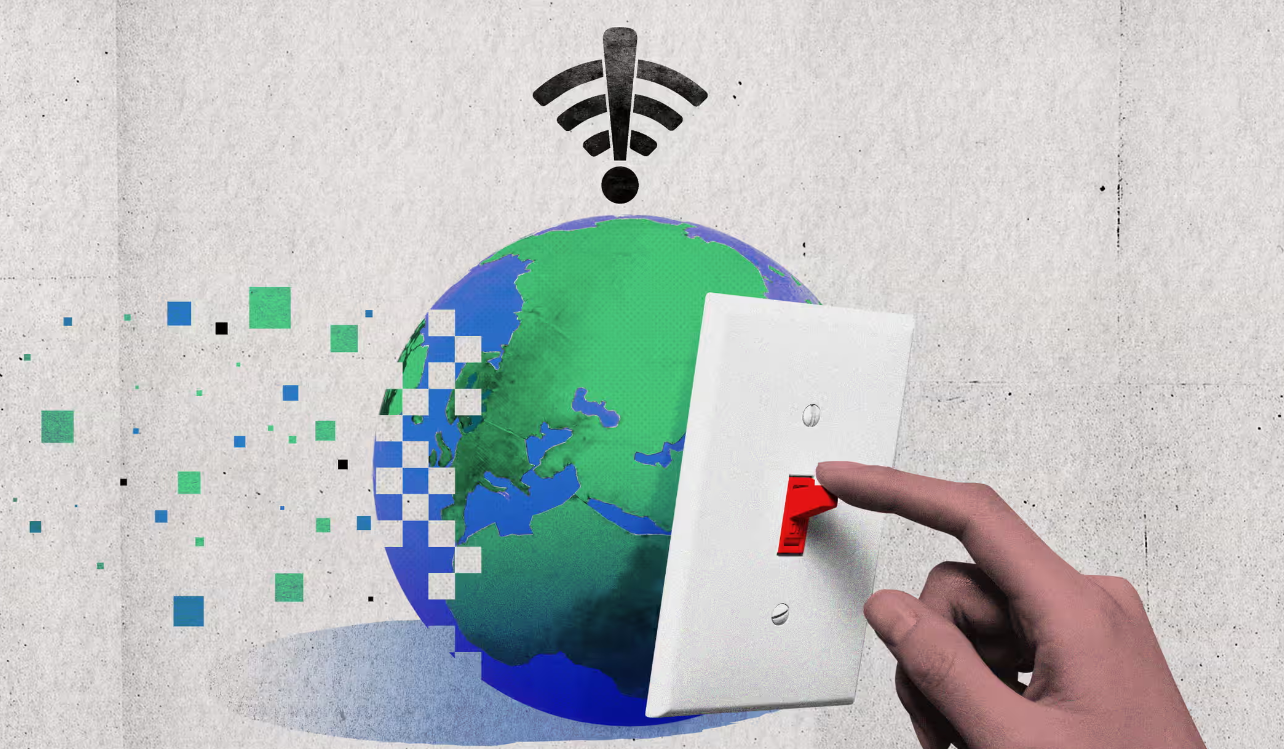
Internet Cutting Top Stages Digital Suppression
Abdullah Rizk Abu Simaza
It was said, When you intercept the flow of news, the darkness falls, and anxiety is widespread. Many may have experienced this harsh experience that reveals the importance of news in peoples lives, especially with the frequent disruption of the Internet in the Sudan, to the four-month battle between the armed forces and the Rapid Support Forces, especially the July 14 battles, or what some have known as the gathering of anger in Khartoum Bahri, or the so-called Omdurman Bloody Tuesday, August 8.
The repressive authorities usually discontinued the Internet when a political crisis arose, but this seemed to tend towards sustainability as the absurd war evolved, entering its fifth month; It manifests itself as a security imperative, or some battle imperative, rather than a pure and blatant aggression against citizens digital rights, first and foremost the right to access the Internet.
In the exchange of information, opinions and news, as stipulated in article XIX of the Universal Declaration of Human Rights, which reads: Everyone has the right to freedom of opinion and expression. This right includes freedom to hold opinions without interference, to obtain, receive and impart news and ideas by any means, without limiting geographical boundaries.
The legitimate concern that engulfs citizens following the blockage of the Internet, the main executor of the news flow - in accordance with the experience gained, or in the light of the facts deposited in the Assemblys memory - is that the governing authorities have what they wish to hide: a disaster or massacre, such as the leadership massacre on 29 Ramadan/3 June 2019, for example.
A recent periodic report of the Sudanese Journalists Association listed a number of abuses and violations of the press and journalists during the war. But cutting off or slowing down the Internet remains a peak in those encroachments and violations.
Therefore, anti-Internet interruptions must find prominence in journalists activities. Needless to say, the disruption of the Internet, partly or wholly, is not limited to the substitute media, subject of the articles inspection only.
Internet shutdowns directly affect electronic journalism and news sites, at a time when paper journalism has stopped, radio and television services have been disrupted from the center, as has social media platforms, which have become an important source of news and information.
In the present circumstances, the authorities deliberately obscure the facts relating to the conduct of war, paralyse the citizens ability to report on his or her security situation, safety and family safety, or on the correct attitude he or she must take in the face of war and its consequences.
It also deliberately absent itself from participation or observing the work of mechanisms that seek to influence its destiny, within the framework of multilateral efforts to stop war.

